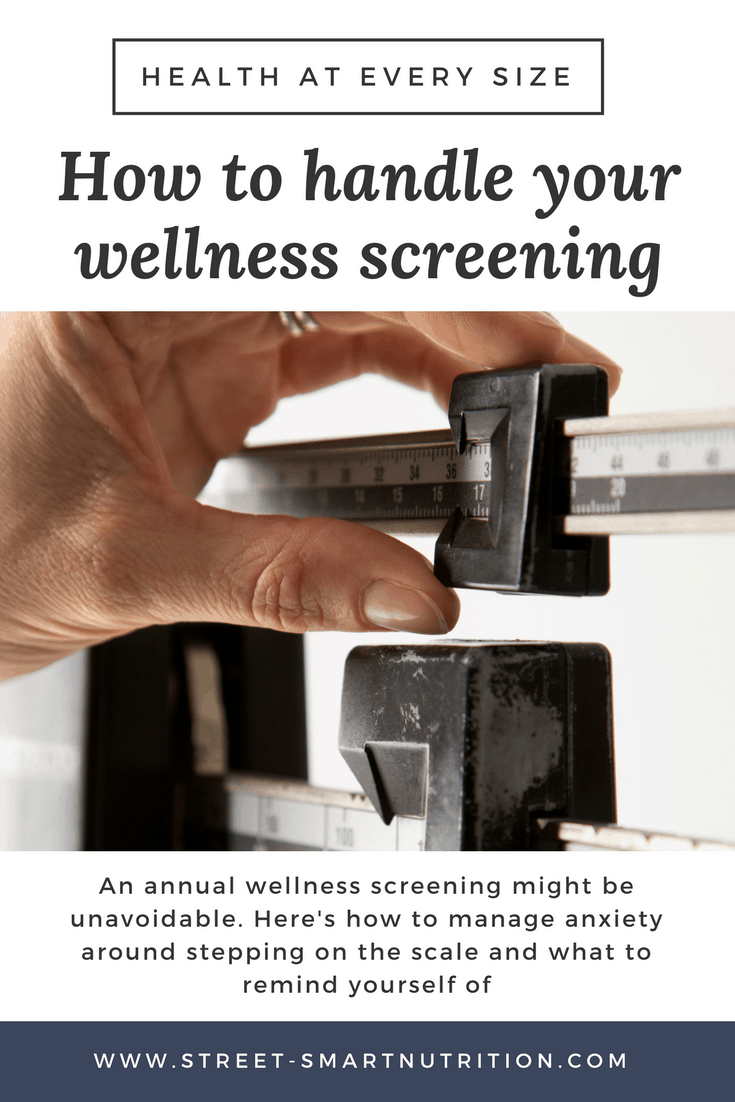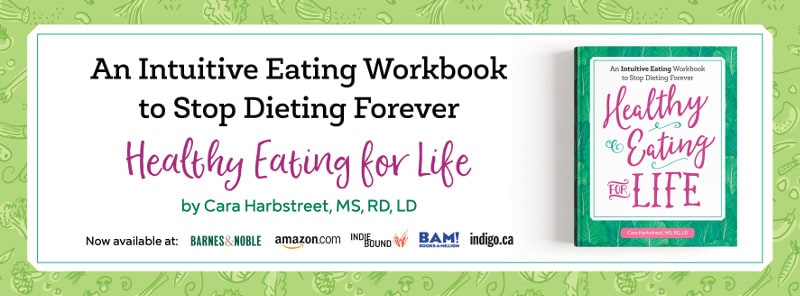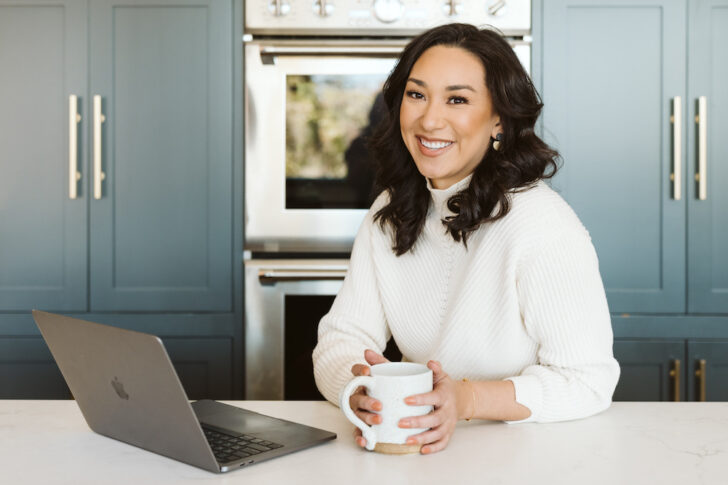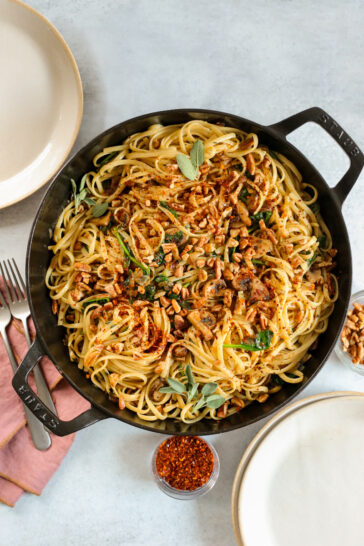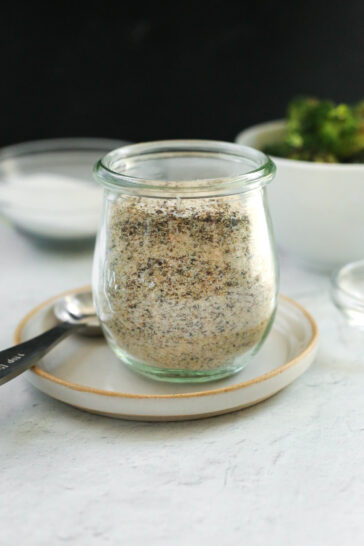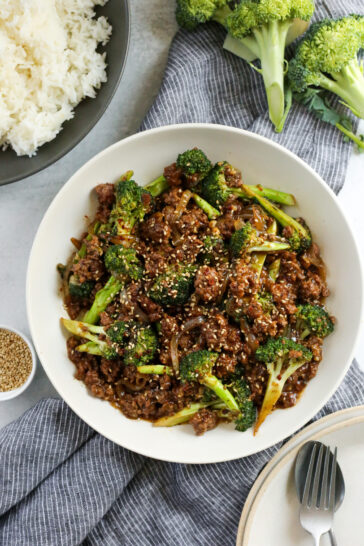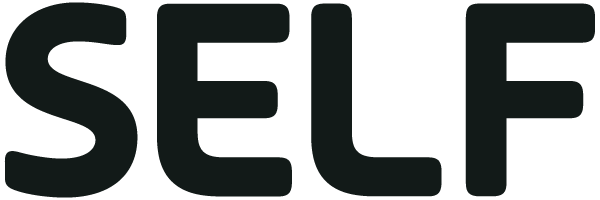Hold on tight friends, long post coming. It’s that time of year again. The time when we roll out our calendars and pencil in our biometric screenings. It may be for an annual physical or workplace wellness, but no matter the reason it seems to have the same result for many: stress, anxiety, and a feeling of dread as that date approaches.
Many of my clients have expressed their concerns about these screenings. As I work with them on intuitive eating and Health at Every Size (HAES), this is one roadblock they have to navigate around. If you feel the same way you’re not alone. I wanted to share a few things in this post that you can arm yourself with. I want you to feel empowered and safe, knowing you can use these things to support your own resiliency against diet culture and weight stigma. I hope you find them helpful.
[Tweet “How To Handle Your Wellness Screening When You Aren’t Interested in Weight Loss”]
Things To Remember
Wellness programs and incentives don’t actually improve health. Despite what your employer and insurance provider would have you believe, there is little evidence that workplace wellness programs do much to significantly improve health for the long term. I didn’t say they didn’t induce weight loss…lots of people lose weight or try to lose weight. But how many of them successfully keep it off? Losing weight is not the same as improving health.
And who hasn’t seen a colleague spinning their FitBit to hit the magical 10,000 steps a day? Who hasn’t commiserated over logging into the portal at the last minute to frantically do a quiz or acknowledge you read the article for the sake of getting your points? Did anyone learn anything helpful for long term, sustainable lifestyle changes? Did anyone actually do anything to improve their health? I could go on and on.
The point is, these programs are in place for reasons we as individuals can’t really control. So it can be helpful to recognize that this system is annoying at best, oppressive and potentially harmful at worst. You are not the problem. The system is the problem.
This is about money. This is not about wellness. If it was really about health or wellness, weight wouldn’t be part of process at all. BMI wouldn’t come up when talking about the results and recommendations wouldn’t center around “losing just 10% of your current body weight.” You cannot control weight but you can control behaviors. So if employers or insurance companies truly had this in mind, they would be more supportive of healthful behaviors like:
- Choosing nourishing foods that you enjoy eating and removing restriction and dieting behaviors
- Finding means of movement that you enjoy, whether that is structured exercise or something else
- Establishing and maintaining good sleep habits
- Mental health and access to resources
- Opportunities to connect and socialize
- Supporting boundaries and avoiding risks
Safe to say, many programs instead choose to entice participants with weight loss, particularly focusing on those who don’t meet the BMI or weight standards of the program. Weight-neutral approaches are missing in most health care settings, including wellness screenings. Weight loss alone does not cure, treat, or prevent disease. People who experience shame in health care settings are less likely to seek care in the future, thus eliminating some of their access to preventative screenings and potentially increasing future health risk. And diets don’t work long term – we know this through research as well as personal experiences.
For these reasons and more, I choose to remind myself of this (along with the fact that I’ll spend hundreds of dollars less on health insurance for the year in exchange for a morning of being highly annoyed).
Try to have a little compassion for the person performing the screening. In many cases this person isn’t even an employee, they’re simply contracted to come in on behalf of their company. They likely aren’t paid very well and may not have a deep background in health or wellness. In almost all cases, this person isn’t informed about Health At Every Size (HAES).
I know because I was that person. In a previous life, in my previous jobs, I did these screenings. I went through the motions of pricking someone’s finger, running the analysis on our nifty little machines, and directing people to “Please step on the scale” or “Please hold this tape measure firmly, right here, and spin around.” I rattled off the scripted recommendations based on the results and answered questions about when their points would show up in their portal account.
Do I wish I had known better? Yes. At the time I thought I was doing a good job of avoiding weight-based talk, instead focusing on numbers like blood pressure or triglycerides within normal range. Looking back I can see so clearly how I was not being helpful. I still advised people to consider healthy weight loss (WTH is that?!) or start exercising to get their 150 minutes a week. But at the time I didn’t know what I didn’t know, and the person performing your screening probably doesn’t know either. Any resentment or frustration is better channeled toward the system, not the individual.
Here are some other quick things you can focus on before you walk in or start reviewing the results:
- My weight, my health, and my worth are different and separate things.
- I recognize and respect my right-here, right-now body.
- I make choices to improve my overall wellbeing, not to control my weight.
- I can serve my health without worrying about my body size.
- Thin does not equal healthy.
- I am allowed to set boundaries because I care for myself.
- I deserve to be respected and to respect myself.
Things To Say When You’re Asked to Step On the Scale
“I prefer not to know my weight so I do not want to see the number or be told what it is.”
In any other situation, you have the right to refuse to be weighed. Yes, you read that correctly.
You have the right to refuse to be weighed.
This may see like a radical request but when it’s done in the name of self-care it’s not so strange. If seeing or hearing the number on the scale has potential to affect your mood and actions for the rest of that day/week/month/whatever, put your needs first. No, you may not have the luxury to avoid stepping on the scale right now. But you do have control over asking for what you know would be best for you.
A blinded weigh-in (or blind weights) can be easily accommodated – it doesn’t take a single second longer than a normal weigh in. You can step onto the scale backwards, keep your eyes on a focal point on the wall in front of you, or otherwise do whatever is needed to block the scale from your field of vision.
“When you write the number down, please do not put it on the copy that I’ll get.”
The whole point of a blind weigh in is not seeing the number. But for someone who isn’t used to hearing this request, it’s easy to forget. They might write the number down on the copy they keep as well as copy it over to the one they hand to you. So a reminder can go a long way to making sure you don’t inadvertently see the number if you choose not to. It might also be worthwhile to contact your employer or HR department (who typically runs a worksite wellness program) and request that the number not be added to your portal or profile if you are required to login to participate in the program.
Does this seem like more work? Yes. Is it still important? Yes. Going against the grain isn’t easy but diet culture and weight stigma persists for a reason.
(If/when you are questioned) “I’m not interested in weight loss and I’d rather focus on other aspects of my health. I don’t need to know my weight to be able to do that.”
It’s natural for someone who’s never been questioned before to wonder, “Why won’t they just get on the scale? What’s the big deal if they know how much they weigh?” And to be honest, I don’t think you owe an explanation to anyone. You don’t have to justify why you want something. But if you can develop a few of these simple phrases, you may feel more prepared and confident when you have to use them.
What to say when you review results
“Can you please give me the same recommendations you would give to someone with a lower weight/BMI if they had the same results?”
Something I commonly hear from newer clients when screening results come up is, “Well everything was in normal range except my weight, so…” And I stop them right there. Everything is looking good. End of story.
But that’s often not the end of the story for many in health care. They’ll immediately turn to weight loss as a means of preventing future health risk or disease. That’s not a good enough reason for me. There are so many predictors and contributors to health or disease, weight is only one of them. And if you do have biometric results outside of normal range, ask them to give you the same advice they would give someone if weight loss weren’t an option. If a normal or underweight person had identical results, what would they hear? It shouldn’t be any different for you.
“I’m not interested in the pursuit of weight loss.”
If your worksite wellness program includes an element of weight loss or dieting, it’s likely going to be blindly offered to anyone who exceeds normal BMI. You can nip that in the bud by stating your feelings before the conversation even gets to that point. You don’t have to waste your time (or anyone else’s time) entertaining the idea of weight loss if you know it will not serve you or your health.
This is not to say that weight loss does not happen for people who begin intuitive eating or believe in HAES. Weight fluctuations are natural and some people do experience a change in their body shape or size. It’s the relentless and persistent pursuit of weight loss, and weight loss alone, that is contradictory to these two paradigms.
Things To Do
It’s possible you may feel a range of emotions or feelings on the day of your wellness screening. When we feel vulnerable or exposed it’s more important than ever to dig deep into our self-care arsenal and make sure we are taking steps to be compassionate towards ourselves. If you don’t already have a plan in place for what to do later that day or evening, here are a few ideas.
- Watch your favorite movie or find a funny/distracting/entertaining video on YouTube
- Take a few minutes to read some pages in a book or an article you’ve been saving. Enjoy a cup of tea, coffee, or something else you enjoy
- Express yourself creatively, whether that’s a project with your kids, crafting or another hobby, or adding something to a vision board or mood board
- Reorganize or clean your space. Set your environment up to be one you enjoy being in
- Turn up your favorite music. Dance around the house. Dance with your kids or your dog or anyone else who wants to dance with you. If they don’t want to, it’s their loss because you can have fun doing things alone
- Go for a walk or find a change of scenery. Visit a coffee shop, a park, your favorite store
- Make a list of your goals. You can organize them into categories like “Career”, “Family”, “Personal” or others. Add accomplishments or things you’re proud of
- Make a list of things you are grateful for or that you appreciate about yourself. Even if the list is short, there will be something that reminds you that your worth is not tied to the results of this screening
- Allow space for your feelings and if you want to, talk to someone about them
- Give yourself time to relax – if you can get a few moments alone to unwind and refocus, that’s great. If your day is absolutely nuts and you can’t get away, make sure you practice other forms of self-care when and where you can
I liked this idea from non-diet dietitian Amy of Satisfy Nutrition: a self-care box. Basically, collect any and everything you think you might need or want and keep it all in one place for easy access. Here’s another example from Kylie of Imma Eat That.
Whew. You made it. If you’re still reading, I hope some of this is going to help you when the time comes for your next wellness screening or annual exam. There’s so much more that could be said on this so we’re really only scratching the surface. But we can leave it at, health is not only our weight and our diet. And the attitudes towards health won’t change unless we speak up. I know this is not easy but you are capable and brave and you can advocate for yourself.
If you have anything to add or you want to share something on the topic, I’m all ears!
And if you’re looking for more support for a non-diet approach and intuitive eating, be sure to check out my Intuitive Eating Workbook. It’s full of resources and tools to help you kick the dieting mentality and find food freedom!
